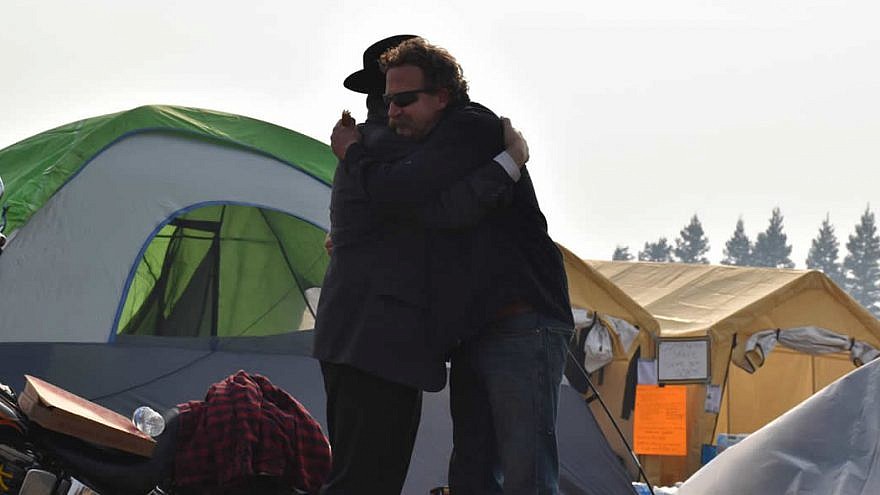A little more than a month after a brush fire raced through the Northern California countryside on its way to becoming one of the deadliest and costliest wildfires in U.S. history, people from Paradise, Chico and Magalia, Calif., are coming to grips on their new normal, if you can even call it that.
The grief at having lost homes, jobs, cars—a lifetime of memories for many—is giving way to a determination to move forward and begin a new chapter in their lives. Part of that determination was evident in the reopening of schools in the region last week, allowing children who hadn’t been together since before the fire to see their classmates and teachers, albeit in makeshift schools for Paradise students.
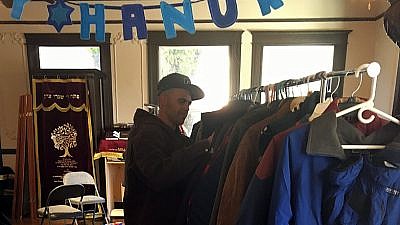
It was in Paradise that the blaze showed no mercy as flames tore through every single thing in its path, livened by high winds, turning Paradise’s morning sky into darkness with only the glow from burning embers all around. Most who survived the harrowing race through the darkness did so with just the clothes on their backs.
Today, residents can return to Paradise and see the places where their homes once stood—to clear the debris from their lots, to see if by some chance some small items can be recovered amid the ruins. Yet there remains no infrastructure, no schools, no places of employment.
As people seek to rebuild and re-establish their lives and livelihood, Jewish organizations are among those coming to their aid, regardless of who needs the assistance.
“We decided that even though there isn’t a [large] Jewish community there … that we would still lend our support,” says William Recht, executive director of the Jewish Federation of the Sacramento Region, which includes Butte County towns of Paradise and Chico in its catchment area. (California’s capital is some 90 miles away from Butte County.) “Over the years, the Jewish community in Sacramento has received tons of support and friendship from the greater community, so we opened a humanitarian relief fund where our community had the opportunity to give Jewishly to support victims of the Camp Fire, whether they are Jewish or not.”
Donations to the Federation relief fund have poured in from people in New York, Washington, Southern California and elsewhere across the nation. To date, the fund has raised almost $200,000, and has already allocated some $54,000 to the Gold Country Region Red Cross, which services Butte County.
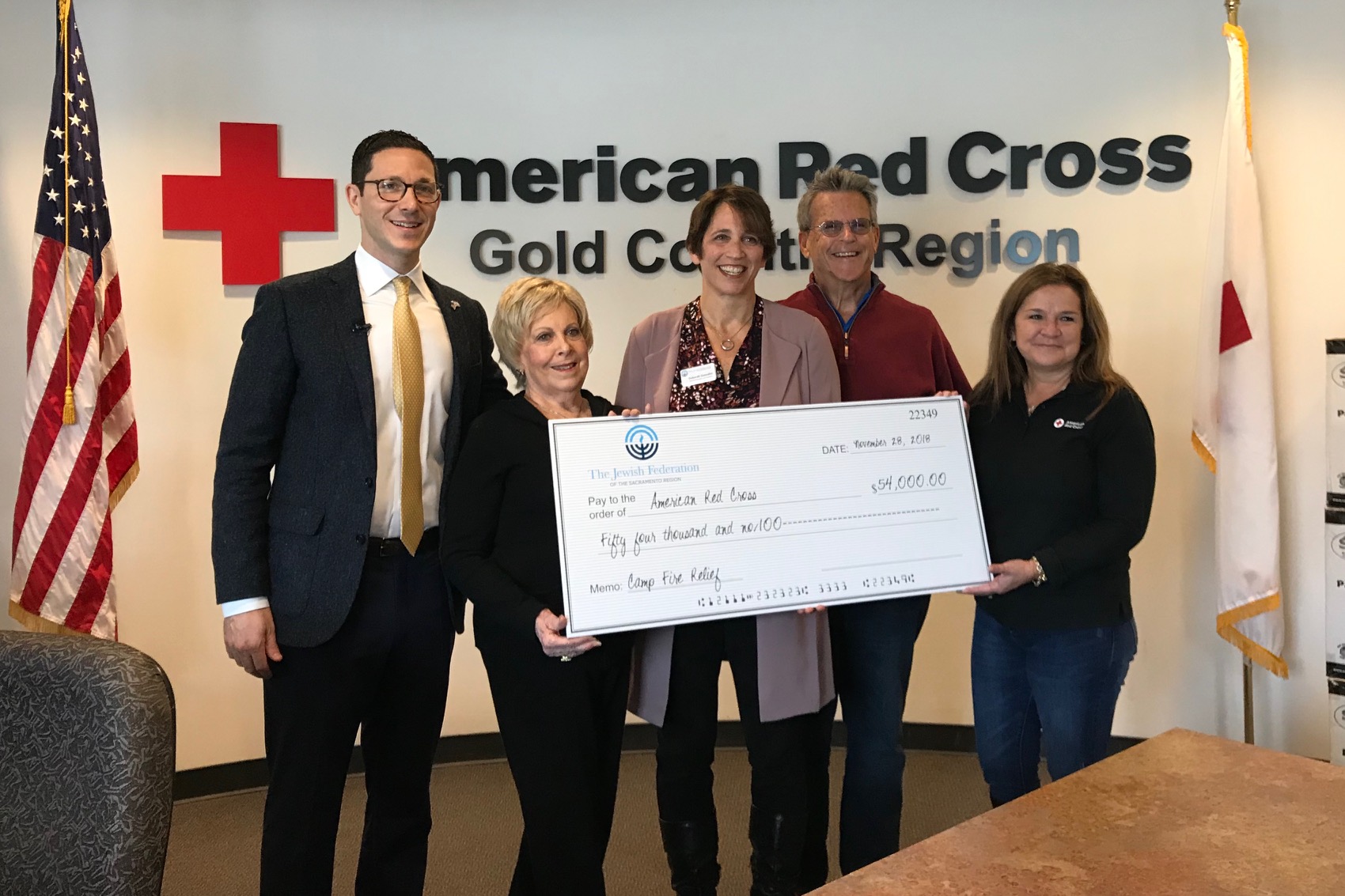
“We’re a small federation, and in the past [few] weeks we’ve raised a third of our annual budget. It’s tremendous for us to receive this support,” says Recht, adding that “100 percent of every dollar that comes in for fire relief will go to fire relief.”
Those funds are desperately needed, according to those on the ground.
One of the biggest issues to come from the fire is the growth in the homeless population. Like much of California, Chico was dealing with a housing crisis long before the Camp Fire. Now with at least 26,000 people displaced—many of whom have not found temporary housing yet—the crisis has only gotten worse.
Those evacuees who have not found a place to stay with friends or family, or happened upon a scarce rental unit, have relied on the various public shelters. Most of those are closed now, having been consolidated to one space: the Silver Dollar Fairgrounds.
“We had 2,000 homeless people before the fire, which compounds an already dire situation,” said Rabbi Sara Abrams of Congregation Beth Israel in Chico. “There is a lot of need here. The fire didn’t happen here in Chico, but we are feeling the effects because we have 25,000 more people living here now. … This is a long-term crisis, and there are just many more questions than answers.”
‘Anger, grief and confusion’
Four families from Abrams congregation are among those who lost their homes. She says everyone is helping them as much as possible. She notes that the Santa Rosa Jewish community, which is more than 130 miles away, put together beautiful gift baskets for those families that included mezuzahs, menorahs, Shabbat candlesticks and a seder plate.
“We are also receiving, along with Chabad in Chico, winter coats to distribute next week,” she says. Abrams has also received more than more than $20,000 in gift cards—$10,000 of which came from the Jewish Community Federation of San Francisco—thousands of dollars in gift cards to distribute to families in need. “We’ve already dispersed about half of that.”
Also on the ground is the a humanitarian agency IsraAID. “The response from the community in Chico has been extremely warm and welcoming,” said Ethan Schwartz, a spokesperson for IsraAID. “Many in the local community have expressed the urgent need for the psychosocial support work that our team is doing.”
“At IsraAID, we always make the decision to deploy an emergency-response team in partnership with the local community,” he explained. “Having witnessed the level of devastation in the area affected by the fires and through our connections with local community groups in Chico, it became clear that our intervention could make a real difference. The greatest needs that we have identified and are working to meet are in supporting long-term community resilience and stress management for first responders.”
Schwartz went on to say that while IsraAID helps communities around the world—from South Sudan to the Philippines to Guatemala and beyond—this one was personal, as the agency’s U.S. headquarters is located in the San Francisco Bay Area.
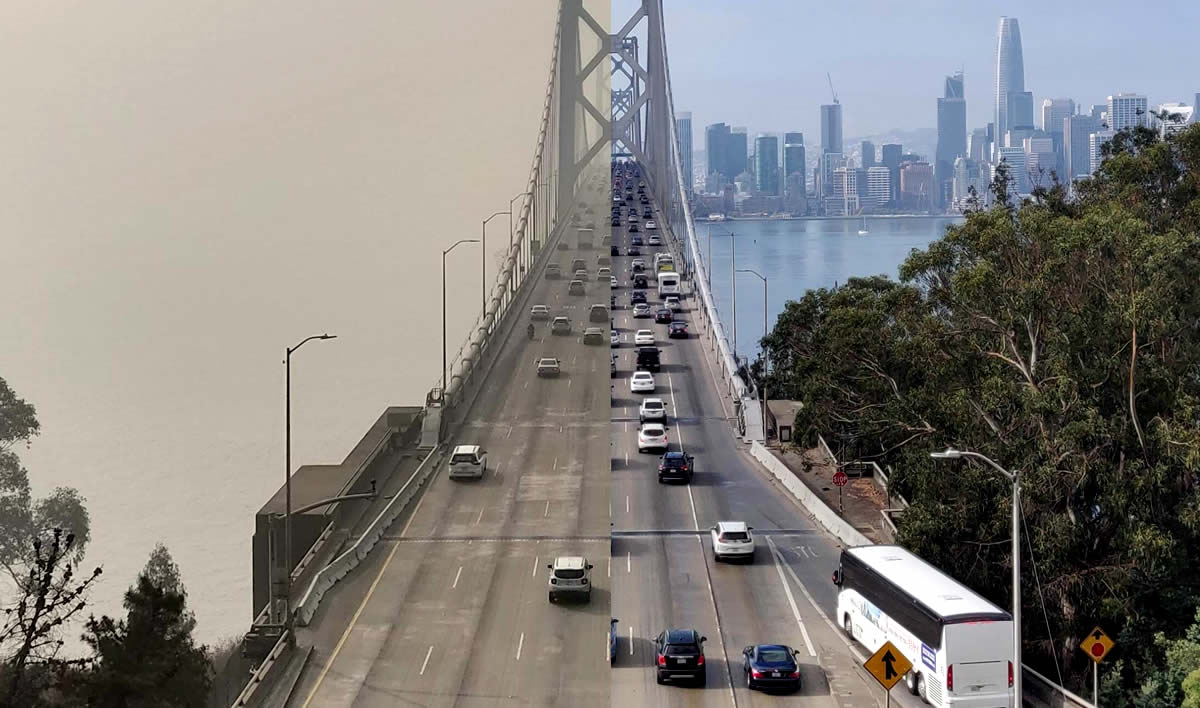
In the early days after fire, Abrams says she did some pastoral care at the shelters, listening and praying with people so they would have the “strength to get through this and listen to them express their emotions. There was a lot of anger, grief and confusion. But when I went back [recently], people were starting to make plans.”
But that, of course, requires the means and funds to get around—to find housing, look for a job, get to a doctor’s appointment or even go out and buy groceries.
“Initially, everyone was focused on clothing, food and shelter,” says Chana Rochel Zwiebel, co-director of Chabad of Chico with her husband, Rabbi Mendy Zwiebel. “Now we are in the next phase, and we are doing everything we can to help with the rebuilding and giving people back some independence.”
A fraction of what’s needed
To that end, Chabad of Chico began a vehicle-donation drive to find cars for people who lost their homes and/or vehicles in the fire. According to Zwiebel, more than 700 people have applied for cars. “There are so many stories and so many people who need help. We get more requests every day because there is just such a great need.”
Recipients of the car-donation efforts must have a demonstrated need for a vehicle. Among those who have already received cars are a father whose son needed to be transported to area hospitals for cancer treatment and an older couple who are staying with family some 200 miles from Chico temporarily and must come into the city for work and health care.
Thanks to generous donors—some of whom have driven 300 or more miles to drop off a car they no longer needed, or in some cases, a second car they felt others needed more—Chabad has handed out 13 vehicles with another shipment expected this week. They have also given out more than $37,000 in financial aid to people who have lost everything.
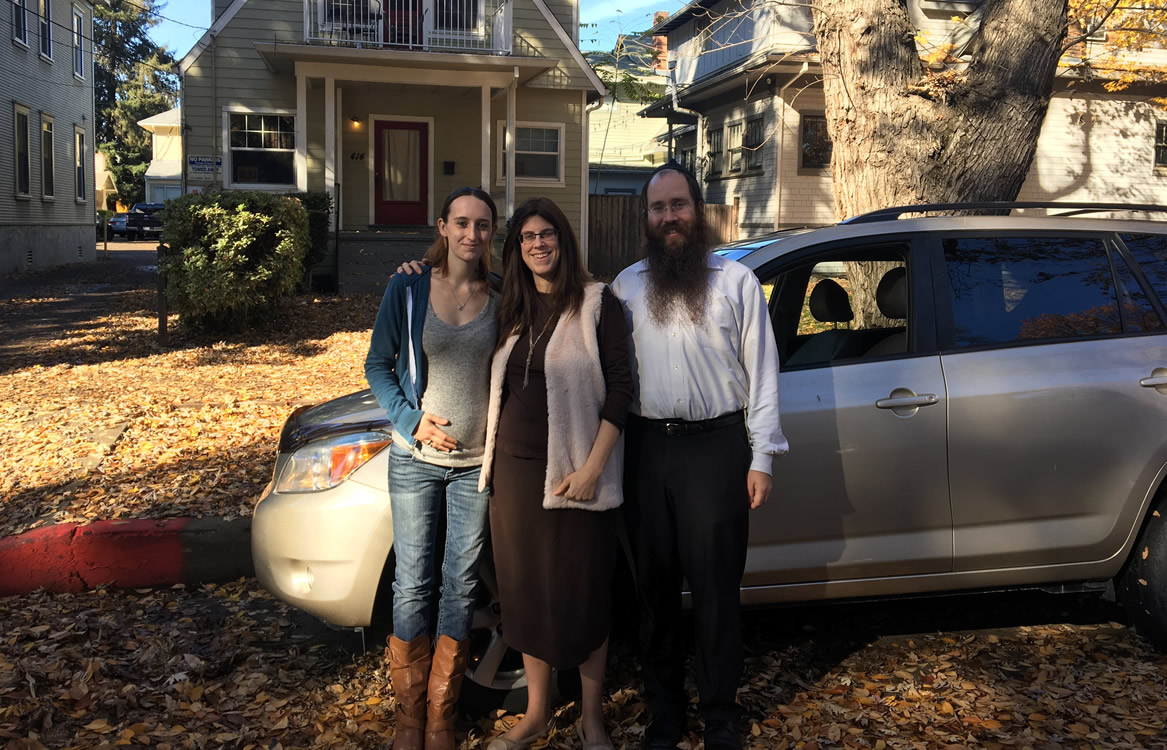
Still, Zwiebel says, it’s a fraction of what’s needed. “Initially, food and shelter were the most important; now we are in the next step and are doing everything we can to help with rebuilding. Giving people a vehicle gives them independence and helps them in the most significant way.”
Some have been even living in their cars until adequate shelter can be found.
While many are making steps to move forward, Zwiebel acknowledges that “the ones who can piece their lives back together are doing so slowly, but there are still a significant number of people who aren’t able to do that.”
“Nothing is going to be the same,” she goes on to say. “We didn’t ask for a national disaster to happen, but the giving and unity and number of people wanting to help is just amazing.”
Abrams agrees, saying, “We are grateful to everyone who has reached out to us, and to the people who gave us gift cards to distribute and the person who gave us hand-knit hats to give out at Hanukkah for people who had lost their homes. [They are] such beautiful acts of generosity and love.”


























